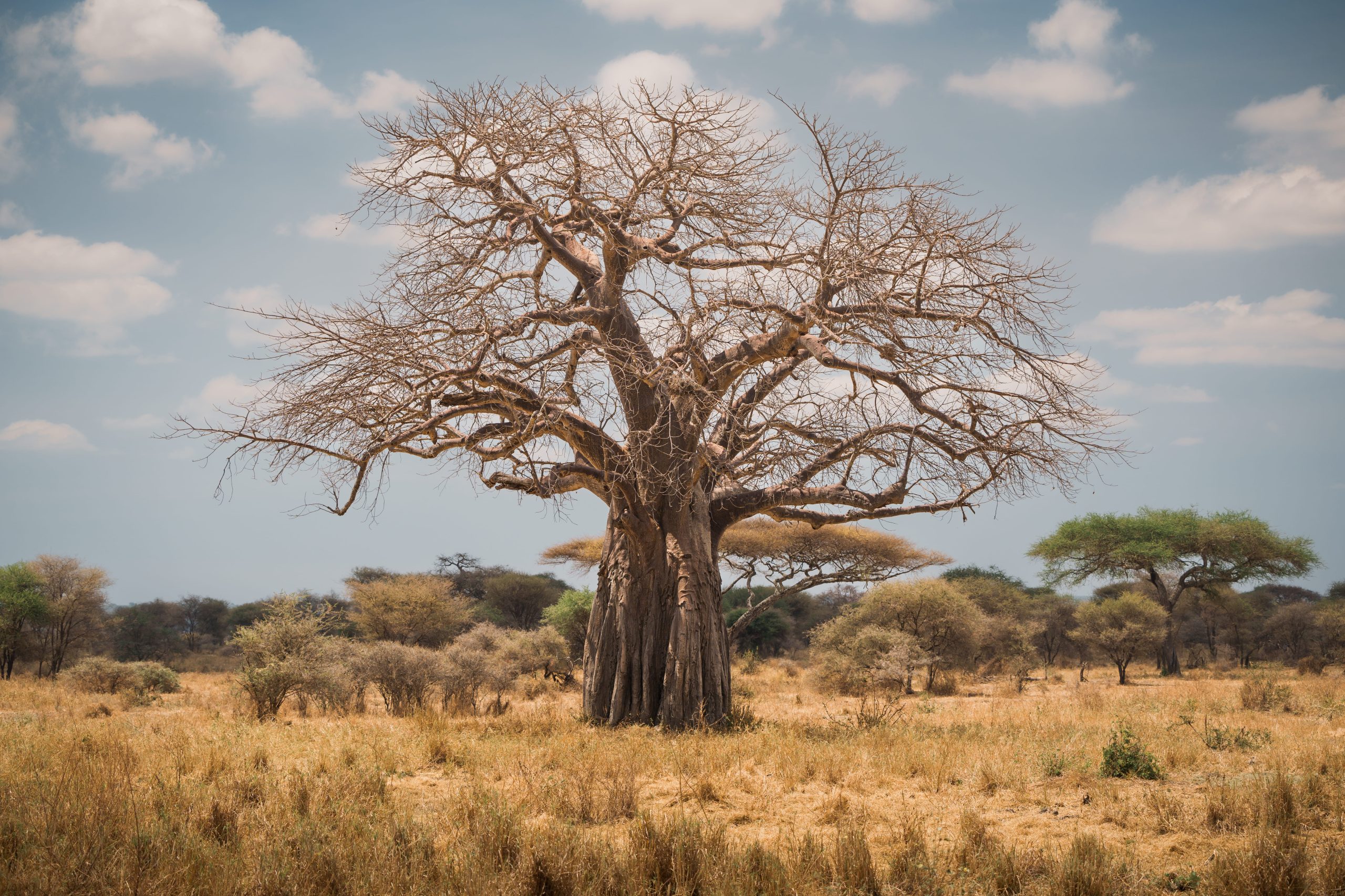The Baobabs of Kruger: Africa’s Ancient Giants
In a land filled with lions, elephants, and endless sky, it takes something special to stop you in your tracks. That “something” is the baobab—an ancient tree that stands like a silent monument in Kruger’s northern landscapes.
Baobabs aren’t just trees. They’re timekeepers, ecosystems, landmarks, and symbols of endurance. Some of Kruger’s baobabs are estimated to be over 1,000 years old, making them older than many recorded histories and dynasties. They’ve watched the rise and fall of empires—and yet they stand, weathered but alive.
What Makes a Baobab So Special?
Also known as the “upside-down tree” for its odd, root-like branches, the baobab is instantly recognisable. But its beauty is more than skin deep. These trees are water storage machines, capable of holding thousands of litres in their massive trunks to survive long dry seasons.
Their bark is soft and fibrous, their leaves drop in winter, and their white flowers bloom briefly at night—pollinated by bats and bush babies. Every part of the baobab has a purpose: its fruit is rich in vitamin C, its bark can be used for rope, and its hollow trunks have historically sheltered people, animals, and even served as storerooms and chapels.
Where to See Baobabs in Kruger
Baobabs are most commonly found in the far north of the park, particularly near Pafuri and along the routes toward the Limpopo River. The Punda Maria to Pafuri drive is especially known for its ancient specimens.
Closer to Letaba, you may spot one or two majestic baobabs on the way toward Mopani or in the drier areas north of the river. These are often solitary, towering figures that break the horizon like something out of folklore.
Be sure to bring a wide-angle lens—capturing their size and scale is part of the experience.
Baobabs in Folklore and Culture
Baobabs are steeped in African myth and storytelling. In some traditions, the gods planted the baobab upside down in anger, which is why its branches resemble roots. In others, baobabs are thought to trap spirits or hold ancestral wisdom.
These legends reflect the tree’s place in local life—not just as a resource, but as a spiritual landmark. Many communities have historically gathered under baobabs for shade, stories, and ceremonies.
Why Visitors Fall in Love with Them
Baobabs evoke a sense of wonder that no photo can truly capture. Their massive trunks are often scarred from centuries of elephant rubs, storms, and the elements, yet they stand firm and proud.
They seem out of time—quiet, motionless observers of the world around them. And when you see one, especially in golden hour light, it often becomes the memory that lingers most from your trip.
Travellers often describe them as “humbling” or “spiritual.” Some return to the same tree each trip, as if checking in with an old friend.
Experience the Baobabs Over a Meal
If you’ve spent the day exploring Kruger’s northern routes or stopped to admire a baobab at dusk, there’s no better way to wind down than with a meal that’s just as grounded in local flavour.
At Tindlovu Letaba, enjoy dishes like grilled venison, traditional bobotie, or warm pumpkin fritters while watching the river below. Just like the baobabs, these meals are rooted in heritage and tied to place.
Bring your camera, your curiosity, and your sense of awe—because Kruger’s baobabs are more than trees. They’re living reminders that sometimes, the most powerful things in nature stand still and say nothing at all.

